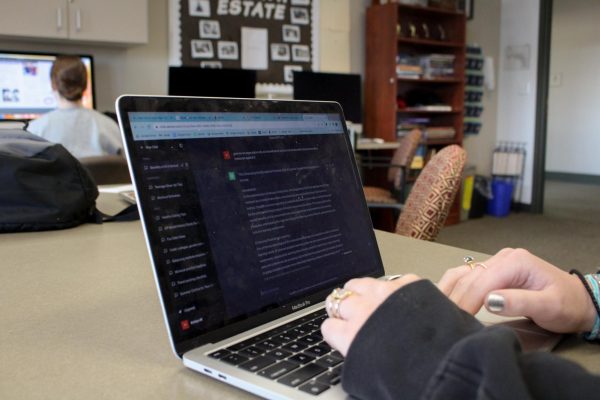Exam Stress: Do’s and Dont’s
Exams are here, and that means stress. Here are some tips on how to perform better by caring for yourself.
Stick to a routine
Hey, is your life going off the rails? Try a routine. According to Northwestern Medicine, people who do not follow a routine often run out of time, while having a routine helps people can stay on track. “People who set routines tend to stick to them better,” Dr. Stewart Burgess, a child psychologist and psychology teacher, said. “The times when you most need to take care of yourself are the times when you feel like you don’t have enough time to do it.” Create a schedule and a to-do list, then stick to it. Having a daily routine will bring your stress levels down, and you’ll sleep better at night. Overall, having a routine means less stress and more productivity. Doesn’t that sound great?
Take a break
During exam season, the scent of exhaustion is in the air. Taking a break while you’re studying can help with that. If you are working for too long, it might be time to take a break. If not, all that information you’re trying to learn might go to waste. Studying for long periods of time can be stressful as well. Although some people think cramming information will help the next day, taking “movement breaks” are actually beneficial for your mental and emotional health. “Adults typically have a 40 minute window of time where you have sustained attention,” Dr. Burgess said. “Then at that point, it would be really beneficial to stand up, walk around, stretch, do something different for just a couple seconds and restart again.” Breaks are awesome because it means you can study better and remember more information.
Don’t try to cram
In order to study effectively, try the SQ3R method: survey, question, read, recite and review. In this method, a person first surveys the whole chapter and headings to see what is being studied. Next, read the summary of the chapter, and then start asking questions to gain a deeper understanding of the subject. “You’re not going to be able to cram it all in at once and be as effective as if you look at it from high elevation. Then come in and start to answer a bunch of specific questions,” Dr. Burgess said. “Put it away, come back to it, relearn it, come back to it, review it again.” Having this routine will also be more efficient in learning what all you need to study for each subject, resulting in better grades. Who doesn’t want that?
Remember to sleep
Doesn’t feeling sleepy suck? We can help change that with a few tips. If you feel drowsy during the day or even experience “microsleeps,” brief sleeps while you’re awake, you are most likely not getting the correct amount of sleep. “If you’re getting three or four hours of sleep, you are significantly disrupting your REM sleep and some of your deepest cycles of sleep,” Dr. Burgess said. “In addition to that, you will feel more stressed and perform a little less well, in terms of your focus.” According to the National Sleep Foundation (NSF), taking 30 minutes to relax and disconnecting from electronics before heading to bed can help you fall asleep. The average teenager needs at least seven hours of sleep, but most studies show that nine hours is ideal. Please sleep. It is a crucial part of existing, and there are also a ton of positives to getting a healthy amount of sleep.
Don’t eat your feelings
“Stress eating” is real. Many people suffer consequences of overeating when they are stressed. According to Harvard Medical School, at first, stress will turn off a person’s appetite, but having too much stress will produce a hormone called cortisol, which makes people want to eat more. “If you’re hungry, if you’re tired, and if you are already stressed, it’ll make you feel more stress and more likely to kind of melt down,” Dr. Burgess said. “If you know you’re under pressure, then you need to make sure you’re eating and drinking enough.” Try to keep a healthy balance throughout the day. This would include a good breakfast and healthy foods like vegetables, fruits and nuts. Stress eating is something you need to be aware of coming into exams. Try preparing some healthy food before a long study session.
Don’t be too hard on yourself
When you’re stressed, remember you’re going to be okay. In order to help yourself through this stress, you need to first realize when stress is causing a problem and identify its causes. “People who approach their work as a challenge, and they think, ‘okay, that’s going to affect how I approach this,’” Dr. Burgess said, “they tend to attack the challenge better, report less stress and have more success.” Last but not least, don’t be too hard on yourself. These exams are hard, but as long as you try your best and work your hardest, you will be okay. Just remember in the grand scheme of things these exams aren’t the end of the world.






